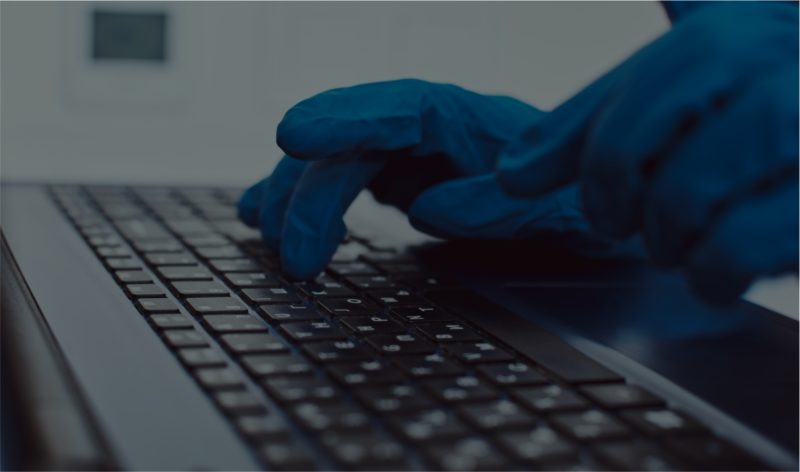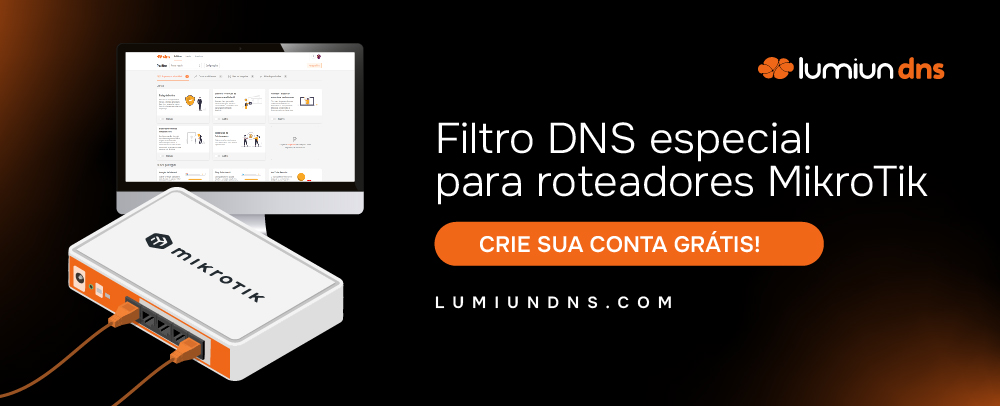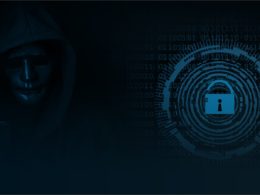All companies, not just small and medium-sized ones, are prone to suffering a cyber attack for various reasons: ideological, financial or even the simple challenge of accessing a system that is already very well protected. Perhaps, in the latter case, it does not apply to small companies, after all, among all, the vast majority of them do not think about cybersecurity, and if they do, they believe that it will never happen to them.
Below, you will see many reasons to worry about the dangers of the internet, especially if the environment is business, and even worse, if it is a small or medium-sized company.
What is a cyber attack?

A cyber attack is an attempt (successful or not) by a hacker to damage, hijack, steal, or destroy a network or computer system connected to the internet. In the vast majority, the criminal's main objective is the violation of sensitive or confidential data of companies or individuals.
The channels for such an attack are diverse, as are the possibilities, and can take the form of identity theft, viruses, malware, fraud or extortion.
Companies are the main targets as they have more sensitive data and the vast majority have more funds available to pay rewards for the return or unlocking of the hijacked data, for example.
But make no mistake, a cyber attack can be more than just the loss of a few documents, as losing all company data can have a devastating impact on a company, regardless of its size.
Many companies claim that they do not use data protection systems because they believe they are too small to be attacked. However, the cost of preventing an attack is much lower and requires little time and attention from the manager or professional responsible.
In the next few lines, you will see how a cyber attack happens.
How does a cyber attack happen?

Several forms and reasons characterize a cyber attack, however, most of them are difficult to detect.
The vast majority of attacks have their main entry point, clicks and access to inappropriate websites by lay users within companies.
In another article here on the blog, I listed the 8 main cyber attacks with lots of information about them. free PDF download is also available
Among the most common are:
- Ransomware – Hijacking of company data and demand for “ransom” in cryptocurrency
- Trojan horse – Malicious executable attached to a fake email
- Phishing – Theft of confidential data through a fake page
- Malvertising – Attack of false and malicious sales advertisements
If you notice, in almost all attacks, the gateway depends on a click or action by an internet user, with a lack of knowledge being the key to the success of the attack.
What to watch out for on the company network to be safe?

As we saw above, the majority of attacks come from employees and internet users who are unaware of the countless possibilities, clicking on harmful links and downloading malicious files. However, in addition to training employees and informing them about the importance of the topic, it is important to take extra precautions, as we will see below.
Weakness mapping
Identifying where threats may come from in your company's network is perhaps the first point to be observed, taking into account the existence of a possible security breach in the company's data. Furthermore, mapping weaknesses can greatly facilitate your process of implementing an information security system, gathering valuable data about the company's network panorama.
To identify possible problems in the internet network, there are security and vulnerability tests of the internet network.
Some of them are based on allowing access to websites considered harmful, while others test the opening of doors on equipment and virus infection.
In fact, in the article “ 3 tests to identify vulnerabilities in your network ”, you will find more detailed information on the topic.
Software and systems
Equipment and systems undergo continuous technological evolution and need to be replaced and updated periodically. Furthermore, you must take into account aspects of quality and performance compatible with the company's use, so that they work in a way that perfectly meets needs, without overloads, failures or defects due to inappropriate use.
Check annually or in a specific report whether the company's equipment is up to date and working without overloads. Outdated equipment is an easy target for hackers.
Furthermore, there is the “originality” factor. Many companies today choose to use pirated tools to reduce costs. However, this option can lead to several problems, mainly data security, after all, they are modified versions of the original, where mainly security and originality verification features have been removed.
For operating systems the logic is the same. Updated, it contains security improvements in addition to new features, as new forms of invasion and security breaches emerge.
Therefore, keeping the company's equipment and systems up to date is one of the main points for efficient data security in companies, as they are used massively every day.
Backups
Is there a reliable and periodic backup system in your company? If the answer was no, it is an extremely important point for you to pay attention!
Backup systems make it possible to recover important data in the event of any accident.
In some types of attack, such as ransomware, which hijacks data until a ransom is paid, the main way to solve the problem is to restore company data from a backup copy.
The backup strategy must be implemented in such a way that there is a backup copy maintained in a location disconnected from the original location of the data. If the backup copy is made on an additional disk constantly connected to the server or network where the original data is located, in the specific case of ransomware, it is possible that the backup files will also be blocked at the time of the attack, making the backup useless. It is important to have a backup copy in a separate location from the original location where the data is stored.
Backup is essential for the security of company information.
firewall
A firewall is a security device that controls the flow of data on a network. With it, you can filter traffic, configuring what should pass through and what should be discarded.
It is considered one of the basic data security items for companies. It is extremely important that you check that you at least have an active firewall system on the company network.
When correctly configured on a computer network, the firewall works as an additional layer of protection against external attacks and increases the security of the company's network, equipment, systems and information. Typically, the firewall is one of the main defenses at the perimeter of a private network, being an essential component in protecting against unwanted traffic and intrusion attempts.
Remote access
With the large number of professionals working from home, it is quite common for companies to provide some support to these employees remotely. However, without the company's protection systems working in favor of the employee, the data and devices in this action will be at risk if they do not use secure remote support tools.
Accessing company data remotely carries with it several dangers. When not encrypted, they can be tracked by hackers and open spaces for various attacks.
Furthermore, if employees remotely access their personal computer, it may not have the same security and protection tools that the company's equipment has.
Therefore, if at some point one of the company's employees remotely accesses the company's internal data, it is extremely important to use a solution to protect the data transmitted.
Among all the solutions, the most used is certainly the Business VPN.
The acronym “ VPN ” stands for Virtual Private Network, translating Virtual Private Network, is a network technology that uses the internet to connect a group of computers and maintain the security of data that travels between them.
The main advantage for a company that uses VPN is certainly the increase in information security when there is a need to transfer confidential data between branches or for employees who work remotely and need to access data on the local network.
In the next topic, we will look at some solutions to the main data security problems in small businesses.
How to avoid cyber attacks?

It's never too late to protect yourself from cyberattacks, but better yet, don't wait until you are attacked.
Are mapping weaknesses, updating software and systems, firewall rules, backup systems and using a Business VPN sufficient ways to keep company data safe? Maybe not!
Seeing the number of companies and professionals we talk to daily, we realize that the biggest “Achilles heel” in companies is the lack of knowledge and training of employees.
There is no point in basic security systems if the employees themselves open the doors and receive hackers as “visitors” in their work environment.
But, to the relief of many, there are ways to prevent unaware, unaware or distracted employees from leaving the company's important data on the table for any hacker to take possession of, as we will see below.
Use a data security policy
Establishing guidelines for organization members regarding the rules for using information technology resources is perhaps one of the “cheapest” ways to improve data security.
These rules, listed in a document, signed and foreseen by the user before making any use of the company's equipment, serve to prevent unaware, unprepared, negligent and in some cases even malicious employees from putting company data at risk, at the mercy of digital criminals.
Developing an information security policy in the company can reduce possible expenses and investments with corrective measures arising from cyber attacks.
Control internet access
Controlling internet access is a common practice in companies and is increasingly important and necessary. Unlike the information security policy, access control does not require the employee's common sense and will to ensure that harmful websites outside the scope of work are not accessed.
In most incidents or security breaches, the gateway to attacks or virus installation are users who are unable to identify possible risks and end up clicking on fake links in emails, social media ads and malicious websites.
Therefore, using an internet access control in the company can close the vast majority of entry points for cyber attacks.
Among those available on the market, some solutions for controlling internet access stand out, such as DNS Filter , Lumiun , NextDNS and Cisco Umbrella .
Among those mentioned, only Lumiun has full support in Brazilian Portuguese and payment in national currency, which is a big difference, taking into account the growing value of the dollar.
Conclusion
Your concern with data security and your presence here in this article already makes you different from most people responsible for security systems in small businesses.
If you want to stay up to date with news related to information security, you can subscribe to our newsletter , which brings weekly content such as news, materials, courses and events.
I hope I have contributed to improving processes and identifying gaps in internet security in your company.
To the next!













1 comment
Comments closed